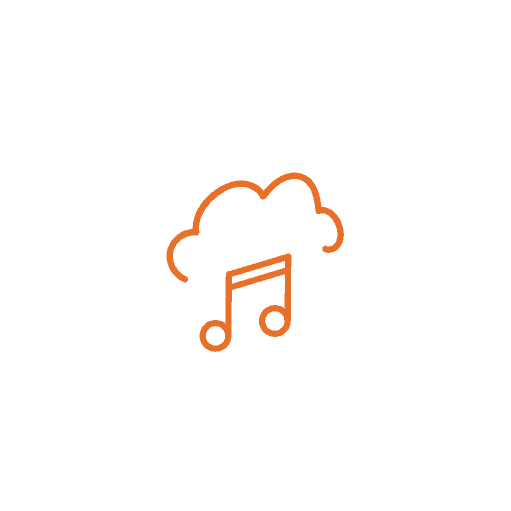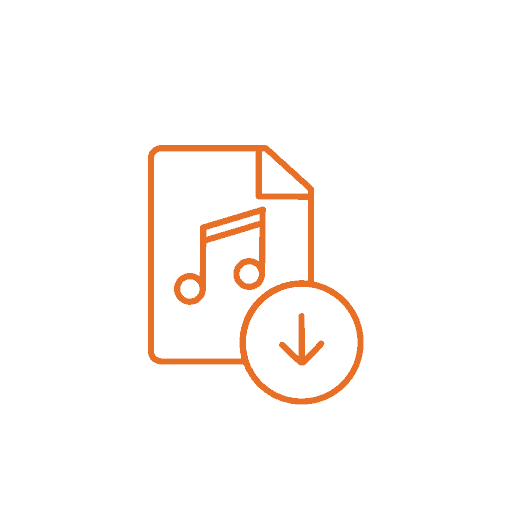COVID-19 and NMOSD Updates
December 16, 2021
GG deFiebre, PhD was joined by Dr. Michael Levy for an ABCs of NMOSD podcast on “COVID-19 and NMOSD Updates.” Dr. Levy began with an overview of how people with NMOSD have been affected by COVID-19 in comparison to the general population. He then discussed vaccines and the data that has been collected so far on its efficacy in people with NMOSD. Finally, Dr. Levy gave an update on the ongoing research that is being conducted on COVID-19 and people with NMOSD.
Transcript
[00:00:00] Intro: ABCs of NMOSD is an education podcast series to share knowledge about neuromyelitis optica spectrum disorder, or NMOSD, a rare relapsing autoimmune disorder that preferentially causes inflammation in the optic nerves and spinal cord.
[00:00:22] ABCs of NMOSD podcast series is hosted by SRNA, the Siegel Rare Neuroimmune Association and in collaboration with the Sumaira Foundation for NMO, The Connor B. Judge Foundation, and Guthy-Jackson Charitable Foundation. This education series is made possible through a patient education grant from Horizon Therapeutics.
[00:00:51] GG deFiebre: Hello and welcome to the ABCs of NMOSD episode called, “COVID-19 and NMOSD Updates.” My name is GG deFiebre, and I’m from the Siegel Rare Neuroimmune Association. The ABCs of NMOSD is made possible through a patient education grant from Horizon Therapeutics.
[00:01:14] Horizon is focused on the discovery, development, and commercialization of medicines that address critical needs for people impacted by rare, autoimmune, and severe inflammatory diseases. They apply scientific expertise and courage to bring clinically meaningful therapies to patients. Horizon believes science and compassion must work together to transform lives.
[00:01:33] For today’s podcast, I was joined by Dr. Michael Levy. Dr. Levy specializes in taking care of patients with neuroimmunologic diseases, including multiple sclerosis, transverse myelitis, optic neuritis, and neuromyelitis optica. In 2009, Dr. Levy was appointed to the faculty as Assistant Professor at Johns Hopkins, where he started the Neuromyelitis Optica Clinic and Research Laboratory, and in 2019, he moved to the Massachusetts General Hospital and Harvard Medical School to develop the research program in immunology.
[00:02:04] So, thank you for joining us for this update on COVID-19 and NMOSD. We had a conversation about COVID earlier this year where, you know, I don’t think we knew as much as we do now. So, we were hoping to update some of our information about NMO and COVID. And so to start, are people, do we know more now about whether people who were diagnosed with NMOSD if they’re more vulnerable to COVID-19, whether that’s through more severe disease or other issues.
[00:02:34] Dr. Michael Levy: Good question. I think at the beginning, the concern was that people with NMO could be more vulnerable in two ways. One would be that if they got COVID, it would be like an infectious trigger and they could get some big, horrible relapse and could end up in the hospital with both COVID and a relapse. And then the other concern was that people with NMO who were on medications that suppress the immune system, well, maybe they’d be more vulnerable to the infection and then would have a bad outcome from the infection because they couldn’t fight it off. Those were the two big concerns at the onset of the pandemic, and we were trying to balance those risks, because in one situation you’re over-suppressing the immune system and worried about getting a bad COVID, and then the other situation, you’re worried about not suppressing the immune system enough and triggering a relapse.
[00:03:27] And we were trying to balance these risks, and we didn’t know, going into the pandemic, the best approach to doing this. We just felt like stopping treatment would be kind of the riskiest of all the scenarios, because we were worried about really triggering relapses and having almost a certain relapse if you don’t continue to treat.
[00:03:49] So, that was our approach. And it turned out to be kind of okay. Certainly there were people getting infections, but they were at about the same rate as the general population. There weren’t too many relapses that were being triggered by the infections. There were certainly some, and there were people without known disease first. So, they would get, they were healthy, then they would get COVID and then their NMO was unmasked as a result of the infection.
[00:04:17] We saw a few of those cases and then they started medications and then did well just like other aquaporin-4 NMO patients. So that’s, that’s what we started to see through the beginning of, through 2019. And then as the vaccine became available, I think we’re going to talk more about the vaccines, then that, that whole risk/balance changed, because the idea there was, well, was the vaccine going to be safe and then was it going to be effective?
[00:04:44] But it was really always talking about the same balances of over-suppressing and under-suppressing and what those outcomes would be and not knowing anything going into it in advance. So, really, just doing the best we could. And fortunately, it seems like in every situation so far, it seems like NMO patients tend to behave just like everyone else. They have risk factors related to age and comorbidities, but not so much related to their immune issues.
[00:05:13] GG deFiebre: Got it. And then you mentioned briefly that you, you know, there’ve been cases where someone has gotten COVID and then that kind of unmasked their NMO. So, can you talk a little bit more about that? Does, does COVID kind of potentially lead to NMO, or is it just unmasking what was kind of already there?
[00:05:29] Dr. Michael Levy: We don’t think that the numbers are particularly high, that there’s some special relevance there. We don’t think that coronavirus expresses an aquaporin-4-like protein that confuses the immune system or anything like that.
[00:05:44] More likely what it is, is that there’s this break in tolerance. There’s an immunity to aquaporin-4 that develops. And it just needs that immunogenic trigger to get you above that threshold. And then the rogue element that attacks in NMO is unleashed. And that could be due to an infection, can be due to vaccines.
[00:06:05] It’s not specific to an infection that we know of. It’s just some immunological trigger from the environment that gets you, that gets you into that new disease state. But I don’t think, we don’t, nobody in the field thinks it’s specific to the coronavirus.
[00:06:22] GG deFiebre: Got it. And then, you know, as you said, it seems like people with NMOSD tend to just do the same as the general population, obviously with maybe these other risk factors, like age or other health conditions. But if someone with NMOSD is experiencing symptoms of COVID-19, is there anything different they should do kind of outside the normal protocol that might exist for someone with COVID?
[00:06:46] Dr. Michael Levy: Well, first let me clarify a little bit by mentioning that people who are on chronic steroids probably have an additional comorbidity related to the metabolic effects of steroids, and that seems to be more harmful than helpful. Of course, if you’re a person with COVID who doesn’t have a disease, and you end up in the hospital with a severe lung infection, they’re going to give you steroids to suppress that immune response.
[00:07:13] But if you consider the big picture of using steroids on a regular basis to prevent disease, that seems to carry so many more additional comorbidities that your outcome seems to be worse. So in the acute setting, it’s safe to use steroids, but in the chronic setting, it seems to be harmful.
[00:07:30] Before we had monoclonals, we would tell people with NMO, if you had a mild case of the disease, stay home and quarantine. And then if you got sicker, then of course go to the emergency room and they would take care of you. And we didn’t think that your immune system should be particularly augmented.
[00:07:48] In other words, we didn’t tell any of our MS patients or NMO patients or MOG patients to come off of their medication and give their immune system a boost. In fact, that seemed to be harmful in a few cases where people did stop their medication and then the over the, the over-activated immune response to this, to the virus actually cause more harm than benefit.
[00:08:12] So we, we didn’t change anything about the treatment. Now that we have monoclonals, I would say that we are more aggressive about pushing people to go get treated because the treatment has to start early. They’re going to use Regeneron or one of these spike protein antibodies for treatment, it’s best done early on.
[00:08:31] And so we don’t know if you’re going to turn out to have severe disease or not. I do push a lot of my patients to go get the infusion if it’s accessible. And now that there are two pills shortly on the market, we are probably going to be pushing these treatments because we’d rather be safe than sorry.
[00:08:48] GG deFiebre: Yeah. So that’s, I was, it’s a good transition to the next question about treatments.
[00:08:52] Because I think, you know, when we last recorded, I don’t know that the monoclonal antibodies were available at that point. And then as you said, now we have these pills that are available. So yeah. Are there any kind of, are you just generally recommending that those, you know, with NMOSD who get diagnosed with COVID-19 get the monoclonal antibody treatment or one of the pills, if, you know, once they become available.
[00:09:14] Dr. Michael Levy: Yeah, it’s not that the monoclonal antibodies are easily available, they require an infusion. There’s usually a wait list. And so it’s not like the easiest thing in the world to do. You have to push for it. If you’re an older NMO person that really helps get you to the top of, to the front of the line, because you have that, the age and obesity and things, those other comorbidities are really the biggest factors to getting the Regeneron monoclonal. NMO, per se, is not a very strong risk factor. So it’s hard to get those people to the front of the line. The pills I think will be more widely available and you could pick them up at your pharmacy, that type of thing. And I’m hoping it’s not going to be as hard to get. And so I would probably recommend it for everybody because of just the fact that it’s probably going to be safe and why take the chance.
[00:10:10] GG deFiebre: Right. And so, you know, obviously we’re very lucky that we have these treatments, but I would say we’re even luckier that we have very safe and effective vaccines that exist that, you know, obviously you’d rather prevent something through a vaccine then have to treat it. So, I guess if we could just talk a little bit more about the COVID-19 vaccines and what we now know, you know, we know more about them related to NMOSD medications or timing of medication, like kind of their effectiveness in the real world as you know, I know we’ve talked a bit about how there might be some reduced effectiveness there for those on immunosuppressive treatments.
[00:10:49] Dr. Michael Levy: Yeah. The immune suppressive treatments are a double-edged sword because, in a, when you get a vaccine and you’re an NMO patient on, say, rituximab and you take the vaccine, on the one edge of the sword, it’s going to protect you from a, a excessive immune response.
[00:11:08] So, you’re less likely to have a vaccine-associated trigger or a vaccine-associated relapse. Vaccine-associated relapses in NMO, they do happen. People, especially if they’re not on treatment, will have a high, much higher risk of a relapse after a vaccine. And we think that the COVID vaccine may be the same if you’re not on treatment. But if you are on treatment, we think that that treatment prevents the immune system from overreacting.
[00:11:39] On the other side of that sword, though, is potentially reduced efficacy, because if you’re keeping the immune system from overreacting, you’re probably keeping it from fully reacting. And we have evidence of that in the form of an antibody test. After a vaccine, if you’re not on immune suppressive medication, you will eventually start producing antibodies against the spike protein.
[00:12:02] The antibodies are just one component of the immune response. So, it’s just, it’s an easy way to measure whether or not your immune system is reacting to it, but it’s not the full measurement of the immune response. In order to make that antibody, you have to have a full immune – you have to have, you have to involve other parts of the immune system.
[00:12:22] And even if you’re on rituximab and not making an antibody, you still have a good response by those other cells. They’re just harder to measure. So, what we’re looking for, especially in people on rituximab, is do people who take the vaccine have a higher risk of breakthrough infection? In other words, you get the vaccine, two doses, or even your booster, and you get the infection anyway. We have not seen evidence of that yet. It’s not like we have a lot of data. In Massachusetts, we are trying to keep track. We know that a few weeks ago, when the last time we acquired the data from the Department of Health, there were about 6,000 vaccine breakthrough infections, but only 30 of those patients had immune suppressive conditions.
[00:13:09] Now, many of them did not – the doctors didn’t record whether or not they had an immune suppressive medication on board, so that number may be artificially low, but we’re not seeing a, an outbreak of vaccine breakthrough among our NMO patients. So, we think that the vaccines are probably working.
[00:13:28] GG deFiebre: So, even if someone doesn’t necessarily have antibodies to the spike protein or low levels of antibodies, you think these other parts of the immune system are potentially kind of kicking in and helping protect them still?
[00:13:41] Dr. Michael Levy: That’s right. That’s what we think. And the, the poor antibody production is a, is how rituximab works. It keeps the immune system from reacting to certain, in certain conditions. And certainly, it keeps the vaccine from producing that antibody that, but that’s something that’s expected in patients, patients who were using an MS related drug called ocrelizumab or ocrevus – there was a large study looking at patients who took the tetanus vaccine on that drug. And they had about 15 to 20% would produce an antibody and the rest did not, which is really how the, the response has looked for the COVID vaccine as well. It’s been about 15, 20%. And it totally depends on whether or not you have B cells around.
[00:14:30] So, when you first get your rituximab infusion, for the first three months, those B cells are completely gone, and then they may start to slowly reemerge. So, in studies where we’ve looked, they’ve compared the first three months after rituximab infusion, compared to after six months. And of course, there’s that gap in between that was unstudied. But in the first three months, it’s almost no chance you’re going to make an antibody.
[00:14:54] If you decide to wait and let some of your B cells come back, you have a better chance of making an antibody response, but then that double-edged sword, it becomes duller and is less able to keep the vaccine from overreacting, from keeping the immune system from overreacting to the vaccine. So, it’s always a balance of risks.
[00:15:14] And what we favored from the beginning was, don’t try to time it, just keep your medication on schedule so that you prevent relapses, and then take the vaccine, get as good of a partial response as you can. Because we, again, we have not seen an epidemic of vaccine breakthrough in people on rituximab or in NMO patients on other treatments. So, we don’t think that it’s failing. We think the vaccines are working.
[00:15:46] GG deFiebre: Got it. And you said that, you know, sometimes that there can be vaccine, kind of, triggered relapses for people who are not on medication, mostly. So, what should someone do if they’re experiencing a worsening of symptoms to, you know, after a vaccine to see whether it’s just, you know, a relapse or just kind of a temporary worsening of symptoms?
[00:16:07] Dr. Michael Levy: Yeah, we looked, we surveyed our, about 500 NMO patients, and we found that about a fourth of them had neurological symptoms, especially after the second shot that were similar to previous attacks. And so, the way we think about that is we had damage from your previous attacks, and those symptoms can reemerge anytime you get a new medication or if you have a fever, any sort of infection. We know that those old symptoms can come back.
[00:16:33] And that’s what we were seeing with the vaccine. We didn’t, in that study, we didn’t capture any cases of actual relapses in NMO patients, but I have, I am aware of a vaccine-associated relapse in a MOG patient. I am aware of two cases where the vaccine unmasked NMO, and that was their first presentation of it.
[00:16:58] I am not aware of any cases of aquaporin-4 NMO, who, whose relapse, who had a relapse triggered by the vaccine, on treatment. I have not seen one of those cases yet.
[00:17:11] GG deFiebre: And then we’ve talked a little bit about boosters and, but if, I guess, could you talk a bit about how, what the difference is between, you know, there’s some people who were advised early on to get a third dose if they were on some sort of immunosuppression, and then now it’s being advised that all adults get a booster.
[00:17:28] So, can you talk a little bit about the difference between those two, and you know, if someone got a third dose, should they get a fourth dose as a booster? You know, how all of that might work?
[00:17:40] Dr. Michael Levy: So, people on immune suppression are advised to get three doses. The third dose is not called a booster for people on immune suppressive drugs. If you’re not on immune suppression, you are recommended to get a booster six to eight months after your last dose.
[00:17:57] And the thinking is that the more you keep the immune system, the more exposure your immune system has to the spike protein, the better able it will be to deal with the infection, should it happen. And consider, for example, hepatitis is also three shots. MMR I think is four now. TDAP is three or four. Varicella is two. Almost all vaccines require boosters.
[00:18:27] And the flu vaccine is the exception because it changes every year, and it’s just too rapidly changing for, for booster shots. But pretty much every other vaccine requires boosters. It’s a natural part of the immune response to keep it ready at all times for the infection.
[00:18:44] GG deFiebre: Got it. And then is there any talks about, you know, for those who got that third dose getting a fourth dose? I don’t know if there’s, if there are data from any other countries that are doing this, or if it’s still kind of just sticking with the three dose for those who are on immunosuppression?
[00:18:59] Dr. Michael Levy: We’re really only recommending three doses. I know that some people are on their own getting a fourth dose. And the thinking, again, if you’re on a good immune suppressive medication is it’s probably not harmful, but we just don’t have enough data to verify that yet.
[00:19:15] GG deFiebre: Got it. And then, how long does someone wait to receive a COVID vaccine or a booster if they get a COVID infection, and is this timeframe kind of different for someone with NMO?
[00:19:26] Dr. Michael Levy: For anybody who gets the infection, the recommendation is to wait 90 days until you start your vaccine – the first vaccine shot. There is data out of Israel, I believe, that people who get the vaccine and get the infection are the most protected out of everybody. And so, it is still in your benefit even if you get the infection to get the vaccine and boost that immune response, because re-infection is so likely.
[00:19:57] Consider the common cold, which is another coronavirus or a series of coronaviruses that you get every year. And it’s something that can happen. Reinfection is not that unusual. And so you do want that vaccine in order to be prepared for the next infection.
[00:20:14] GG deFiebre: Got it. And then if someone is on rituximab and gets the COVID vaccine and they test negative, should they still get that, that third dose even though they tested negative? And do they have a better chance of developing antibodies after that third dose?
[00:20:28] Dr. Michael Levy: I do not check antibodies. The chance of developing an antibody is 15 to 20%, just depending on your rituximab dosing. And I don’t, I don’t expect it. I don’t really want it. My feeling is that if you, if you are going to make antibodies, maybe the rituximab is not as suppressive of the disease as I would like it to be.
[00:20:49] And whether or not you’re making an antibody doesn’t change the outcome for me. The best way to prevent COVID is to get the full three doses, whether or not you’re making antibodies. So, why bother checking?
[00:21:02] GG deFiebre: And then, we’ve gotten questions from people who are on rituximab. And, you know, I don’t know if also we should talk a bit about the other medications, if any of them have the same sort of issues with not developing antibodies.
[00:21:15] But, you know, people have asked if they’re on rituximab and they don’t have antibodies, should they switch medications to something that doesn’t deplete B cells in the same way so that they have a better chance of the vaccine working?
[00:21:27] Dr. Michael Levy: My feeling is no. Until I see evidence that rituximab is really compromising the vaccines’ efficacy, which I have not seen. But until I see something like that, I don’t recommend switching off of rituximab. I don’t recommend, actually from any medication, switching, whether that’s CellCept or any of the three FDA-approved drugs, eculizumab, satralizumab, inebilizumab. There’s really no evidence at all that one medication would favor a better immune response to the vaccine than another. So, I always recommend to my patients: stay what you’re on, treat your NMO, and then also get, take the vaccine on its regular schedule and take whatever partial protection you can get, because it seems to be that that partial protection is really good.
[00:22:15] GG deFiebre: Okay. And then, obviously children were recently, you know, we had the older age group that was approved, I guess a few months ago now at this point. Five to 11 was just recently approved. Is there anything kind of specific for children with NMOSD with these vaccines?
[00:22:32] Dr. Michael Levy: No, I would say same precautions, and that it’s better to be on treatment before you take any vaccine. And that includes kids with MOG. And, you know, with MOG, there’s, there’s patients who are on IVIG, that’s a common treatment for MOG. The dosing is every month. And the expectation, if you take the vaccine at some point after you receive IVIG, is that you’re going to make the antibody in response to the vaccine, but then it will quickly recycle.
[00:23:05] And so, you will still test negative for the antibody. But as soon as you stop the IVIG, then that antibody should build back up. And we don’t think that that’s harmful. So, we think that MOG on regular schedule, don’t bother checking for spike protein. You’re getting a partial protective effect. Plus you’re probably also making the antibody, it’s just not readily detectable because you’re constantly recycling it from the IVIG.
[00:23:33] GG deFiebre: Okay. Great. And then, in recent news there’s been the Omicron variant. You know, we all kind of got used to the Delta variant and the big kind of surge that happened after that. I know that it’s still in the early stages, but I don’t know if you happen to know any kind of, any updates that we can give our community about how this might impact those with NMO?
[00:23:52] Dr. Michael Levy: I can give you my preference. I would like it to not be pathogenic or harmful or out-compete the Delta variant. I’m pretty much done with this pandemic. And I’d like, just like it to go away, please. I haven’t seen any data on Omicron specifically yet.
[00:24:08] GG deFiebre: Yeah. Yeah. Okay. And then, is there any research that’s currently being done as it relates to COVID-19 and NMOSD, or any research that’s been done that we didn’t talk about?
[00:24:19] Dr. Michael Levy: Yeah, there’s still longitudinal studies following patients to make sure that the observations that we’ve made so far are verifiable, and we’re not missing a signal. For example, there were concerns that people who are on B-cell therapy like rituximab or ocrelizumab, if they did get the infection, that they were more likely to have a more severe outcome, because they don’t have B cells to help fight the coronavirus.
[00:24:46] Fortunately, it did not increase the chance of death or dying from coronavirus, but it does make things more difficult in the hospital, require more treatments and intensive care. But those numbers are really small. And the number of people who break through a vaccine and get sick, despite the vaccine, are really small. And so, we really need to build up those numbers to see if that risk is indeed true. So, those are the studies that are still ongoing.
[00:25:12] GG deFiebre: Great. And then any kind of final thoughts or specific kind of takeaways for those with NMOSD who, you know, obviously we’re all still living in this pandemic, so any kind of final thoughts?
[00:25:24] Dr. Michael Levy: Yeah. I think a lot of patients have asked me even after they get the vaccine, do they still need to stay home? And my feeling is that probably no, that you can maintain social distancing, mask wearing, and other mitigation strategies to avoid getting infected. But I think that if you work in a safe setting, if you need to go visit family, and things like that, I think it’s probably safe to do so. Assuming you’re vaccinated.
[00:25:52] GG deFiebre: Yes. Yes. That is key. All right. Well, thank you so much.
[00:25:56] Dr. Michael Levy: Bye-bye.
LISTEN & SUBSCRIBE
TO PODCAST
DOWNLOAD MP3
DOWNLOAD TRANSCRIPT






 Michael Levy, MD, PhD
Michael Levy, MD, PhD





